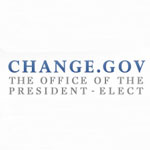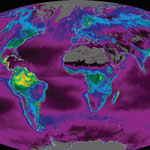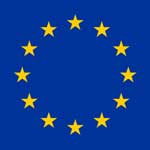Showing Spotlights 41 - 48 of 87 in category All (newest first):
 As nanotechnologies are increasingly becoming the focus of public interests and concerns, there is a risk that public opinion is shaped by either fearmongering or unrealistic expectations. Public engagement in policy making, i.e. having a say in decisions about technological developments that will affect people's lives significantly, should be based on objective information and facts. Public engagement is one of the processes that allows for increased social inclusion. Engagement seeks to achieve increased two-way information flow and knowledge exchange as well as increase overall technological literacy. Previously, we have reported about a German approach to embedding nanotechnology developments in society and covered the social aspects of nanotechnology in Europe. Today, we are showcasing an example from Down Under.
As nanotechnologies are increasingly becoming the focus of public interests and concerns, there is a risk that public opinion is shaped by either fearmongering or unrealistic expectations. Public engagement in policy making, i.e. having a say in decisions about technological developments that will affect people's lives significantly, should be based on objective information and facts. Public engagement is one of the processes that allows for increased social inclusion. Engagement seeks to achieve increased two-way information flow and knowledge exchange as well as increase overall technological literacy. Previously, we have reported about a German approach to embedding nanotechnology developments in society and covered the social aspects of nanotechnology in Europe. Today, we are showcasing an example from Down Under.
Jun 17th, 2009
 A recent report gives an overview of how five jurisdictions (US, UK, EU, Australia and Canada) reacted to the recent emergence of nanotechnology-based products in the marketplace and it describes how this triggered activities in three domains: (a) public and stakeholder debate, (b) development of initial policy options, and (c) the management of regulatory development in a situation of scarce data. The bulk of the report describes the current situation (up to March 2009) in the five jurisdictions and this part doesn't contain information that hasn't already been covered elsewhere. In analyzing this data, however, the authors make some interesting observations and attempt to develop a set of six key regulatory governance principles that they propose for consideration by regulators.
A recent report gives an overview of how five jurisdictions (US, UK, EU, Australia and Canada) reacted to the recent emergence of nanotechnology-based products in the marketplace and it describes how this triggered activities in three domains: (a) public and stakeholder debate, (b) development of initial policy options, and (c) the management of regulatory development in a situation of scarce data. The bulk of the report describes the current situation (up to March 2009) in the five jurisdictions and this part doesn't contain information that hasn't already been covered elsewhere. In analyzing this data, however, the authors make some interesting observations and attempt to develop a set of six key regulatory governance principles that they propose for consideration by regulators.
May 25th, 2009
 In case you want to get up to date on what's happening around the world with regard to the development of risk governance for nanotechnology applications in food and cosmetics, a new report just out from the International Risk Governance Council (IRGC) provides a good overview. An early version of this report was originally written as a briefing paper for an expert workshop organized by the IRGC in 2008. It is also a companion to the IRGC Policy Brief due for publication in early 2009. While this report does not include any primary research, is is a useful primer for anyone who wants to get an overview of what is happening in this area. IRGC is an independent organisation whose purpose is to help the understanding and management of global risks that impact on human health and safety, the environment, the economy and society at large. The organization's focus on risk governance strategies for nanotechnology applications in food and cosmetics is based on rising public concerns.
In case you want to get up to date on what's happening around the world with regard to the development of risk governance for nanotechnology applications in food and cosmetics, a new report just out from the International Risk Governance Council (IRGC) provides a good overview. An early version of this report was originally written as a briefing paper for an expert workshop organized by the IRGC in 2008. It is also a companion to the IRGC Policy Brief due for publication in early 2009. While this report does not include any primary research, is is a useful primer for anyone who wants to get an overview of what is happening in this area. IRGC is an independent organisation whose purpose is to help the understanding and management of global risks that impact on human health and safety, the environment, the economy and society at large. The organization's focus on risk governance strategies for nanotechnology applications in food and cosmetics is based on rising public concerns.
Jan 20th, 2009
 Nanotechnology is the engineering of functional systems at the molecular scale. In its advanced form, which should be achieved within the next decade or two, the technology will allow a revolution in manufacturing - building powerful products with atomic precision from the bottom up - and could fundamentally alter our ability to confront challenging issues such as climate change. In the United States, a new President is about to take office, and is expected to bring with him a totally new outlook on science. We think it?s important now to let Mr. Obama and his advisors know the most important factors about the near future of nanotechnology and its potential impacts, especially as it relates to climate change.
Nanotechnology is the engineering of functional systems at the molecular scale. In its advanced form, which should be achieved within the next decade or two, the technology will allow a revolution in manufacturing - building powerful products with atomic precision from the bottom up - and could fundamentally alter our ability to confront challenging issues such as climate change. In the United States, a new President is about to take office, and is expected to bring with him a totally new outlook on science. We think it?s important now to let Mr. Obama and his advisors know the most important factors about the near future of nanotechnology and its potential impacts, especially as it relates to climate change.
Jan 15th, 2009
 Climate change is high on the global agenda. While the United Nations Climate Change Conference in Poznan, Poland, in December 2008, is an important step towards achieving an international agreement on climate change scheduled for the upcoming Conference of the Parties in Copenhagen at the end of 2009, policy makers and practitioners alike are increasingly looking for practical solutions. A new report by the United Nations University Institute of Advanced Studies (UNU-IAS) offers three innovative solutions in responding to climate change, namely nanotechnology, ocean energy and forestry. The 46-page report goes beyond the technological, biological and procedural aspects of these solutions by critically assessing the opportunities and challenges that each type of innovation presents. This report addresses the question why these innovations - despite their large potential to reduce emissions, ocean energy alone could cover the world's electricity needs - have not yet reached the stage of mass commercialization
Climate change is high on the global agenda. While the United Nations Climate Change Conference in Poznan, Poland, in December 2008, is an important step towards achieving an international agreement on climate change scheduled for the upcoming Conference of the Parties in Copenhagen at the end of 2009, policy makers and practitioners alike are increasingly looking for practical solutions. A new report by the United Nations University Institute of Advanced Studies (UNU-IAS) offers three innovative solutions in responding to climate change, namely nanotechnology, ocean energy and forestry. The 46-page report goes beyond the technological, biological and procedural aspects of these solutions by critically assessing the opportunities and challenges that each type of innovation presents. This report addresses the question why these innovations - despite their large potential to reduce emissions, ocean energy alone could cover the world's electricity needs - have not yet reached the stage of mass commercialization
Dec 15th, 2008
 A new report prepared for the German Federal Ministry of Education and Research outlines an institutional model that meets the safety and security demands of human health, the environment and society. The report draws on an analysis of national and international approaches to nanotechnology regulation.
One of the key findings is that in the case of developing nanotechnologies, the place of classical regulation has been taken by precautionary measures such as observatories, voluntary codes of conduct and stakeholder dialogues. The development of an institutional model is proposed, the Scanning Probe Agency (SPA), as both a necessary and appropriate collective learning process and a means of generating public trust. Its guiding question would be: 'Is nanotechnology in good hands?'
A new report prepared for the German Federal Ministry of Education and Research outlines an institutional model that meets the safety and security demands of human health, the environment and society. The report draws on an analysis of national and international approaches to nanotechnology regulation.
One of the key findings is that in the case of developing nanotechnologies, the place of classical regulation has been taken by precautionary measures such as observatories, voluntary codes of conduct and stakeholder dialogues. The development of an institutional model is proposed, the Scanning Probe Agency (SPA), as both a necessary and appropriate collective learning process and a means of generating public trust. Its guiding question would be: 'Is nanotechnology in good hands?'
Dec 12th, 2008
 When it comes to nanotechnologies, Americans have a big problem: Nanotechnology and its capacity to alter the fundamentals of nature, it seems, are failing the moral litmus test of religion. Survey results from the United States and Europe reveal a sharp contrast in the perception that nanotechnology is morally acceptable. Those views, according to the report, correlate directly with aggregate levels of religious views in each country surveyed. In the United States and a few European countries where religion plays a larger role in everyday life, notably Italy, Austria and Ireland, nanotechnology and its potential to alter living organisms or even inspire synthetic life is perceived as less morally acceptable. In more secular European societies, such as those in France and Germany, individuals are much less likely to view nanotechnology through the prism of religion and find it ethically suspect.
When it comes to nanotechnologies, Americans have a big problem: Nanotechnology and its capacity to alter the fundamentals of nature, it seems, are failing the moral litmus test of religion. Survey results from the United States and Europe reveal a sharp contrast in the perception that nanotechnology is morally acceptable. Those views, according to the report, correlate directly with aggregate levels of religious views in each country surveyed. In the United States and a few European countries where religion plays a larger role in everyday life, notably Italy, Austria and Ireland, nanotechnology and its potential to alter living organisms or even inspire synthetic life is perceived as less morally acceptable. In more secular European societies, such as those in France and Germany, individuals are much less likely to view nanotechnology through the prism of religion and find it ethically suspect.
Dec 8th, 2008
 Europe is a key player in nanotechnology. The European Commission alone, not counting the investments made by individual countries, in 2007 has invested some $720 million into European nanotechnology projects. In contrast to the U.S., much of the science and technology policy in Europe is guided by the Precautionary Principle, although critics argue that this contributes to the high level of bureaucracy and red tape that prevents European companies from speedily translating the continent's leading-edge nanotechnology research into commercial products. Activities concerning the research on environmental, health and safety (EHS) aspects of nanotechnology deal with potential risk issues and are aimed at decreasing uncertainty about potential risks and benefits on the basis of scientific knowledge, for instance research on the toxicity of nanomaterials and manufactured nanoparticles. Since developments in science and technology do not take place independently from society, European policy makers see it as important to support a dialogue on benefits and risks of nanotechnology, including ethical, legal, societal aspects (ELSA) and governance, involving great parts of the public and basing on informed judgment.
Europe is a key player in nanotechnology. The European Commission alone, not counting the investments made by individual countries, in 2007 has invested some $720 million into European nanotechnology projects. In contrast to the U.S., much of the science and technology policy in Europe is guided by the Precautionary Principle, although critics argue that this contributes to the high level of bureaucracy and red tape that prevents European companies from speedily translating the continent's leading-edge nanotechnology research into commercial products. Activities concerning the research on environmental, health and safety (EHS) aspects of nanotechnology deal with potential risk issues and are aimed at decreasing uncertainty about potential risks and benefits on the basis of scientific knowledge, for instance research on the toxicity of nanomaterials and manufactured nanoparticles. Since developments in science and technology do not take place independently from society, European policy makers see it as important to support a dialogue on benefits and risks of nanotechnology, including ethical, legal, societal aspects (ELSA) and governance, involving great parts of the public and basing on informed judgment.
Nov 13th, 2008
 As nanotechnologies are increasingly becoming the focus of public interests and concerns, there is a risk that public opinion is shaped by either fearmongering or unrealistic expectations. Public engagement in policy making, i.e. having a say in decisions about technological developments that will affect people's lives significantly, should be based on objective information and facts. Public engagement is one of the processes that allows for increased social inclusion. Engagement seeks to achieve increased two-way information flow and knowledge exchange as well as increase overall technological literacy. Previously, we have reported about a German approach to embedding nanotechnology developments in society and covered the social aspects of nanotechnology in Europe. Today, we are showcasing an example from Down Under.
As nanotechnologies are increasingly becoming the focus of public interests and concerns, there is a risk that public opinion is shaped by either fearmongering or unrealistic expectations. Public engagement in policy making, i.e. having a say in decisions about technological developments that will affect people's lives significantly, should be based on objective information and facts. Public engagement is one of the processes that allows for increased social inclusion. Engagement seeks to achieve increased two-way information flow and knowledge exchange as well as increase overall technological literacy. Previously, we have reported about a German approach to embedding nanotechnology developments in society and covered the social aspects of nanotechnology in Europe. Today, we are showcasing an example from Down Under. 
 Subscribe to our Nanotechnology Spotlight feed
Subscribe to our Nanotechnology Spotlight feed




